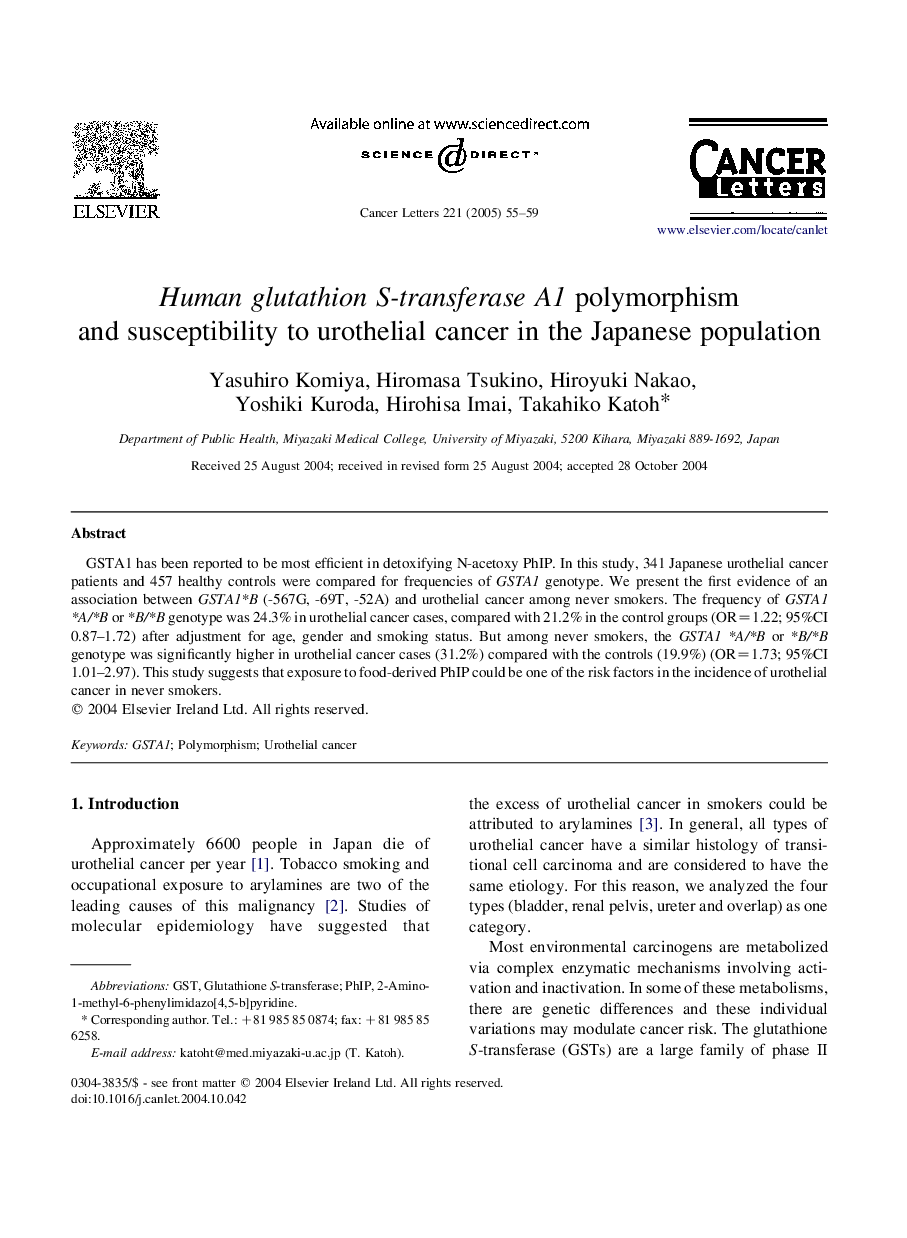| Article ID | Journal | Published Year | Pages | File Type |
|---|---|---|---|---|
| 10902507 | Cancer Letters | 2005 | 5 Pages |
Abstract
GSTA1 has been reported to be most efficient in detoxifying N-acetoxy PhIP. In this study, 341 Japanese urothelial cancer patients and 457 healthy controls were compared for frequencies of GSTA1 genotype. We present the first evidence of an association between GSTA1*B (-567G, -69T, -52A) and urothelial cancer among never smokers. The frequency of GSTA1 *A/*B or *B/*B genotype was 24.3% in urothelial cancer cases, compared with 21.2% in the control groups (OR=1.22; 95%CI 0.87-1.72) after adjustment for age, gender and smoking status. But among never smokers, the GSTA1 *A/*B or *B/*B genotype was significantly higher in urothelial cancer cases (31.2%) compared with the controls (19.9%) (OR=1.73; 95%CI 1.01-2.97). This study suggests that exposure to food-derived PhIP could be one of the risk factors in the incidence of urothelial cancer in never smokers.
Keywords
Related Topics
Life Sciences
Biochemistry, Genetics and Molecular Biology
Cancer Research
Authors
Yasuhiro Komiya, Hiromasa Tsukino, Hiroyuki Nakao, Yoshiki Kuroda, Hirohisa Imai, Takahiko Katoh,
